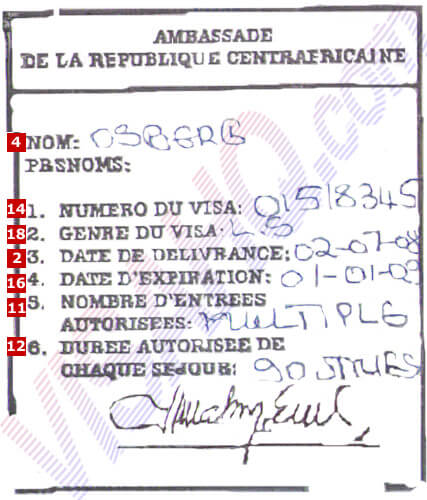Central African Republic Embassy list in Bangladesh
Need help?Chat with us
Why Trip Registration at the Central African Republic Embassy is Important
Registering your trip with the Central African Republic embassy is crucial for ensuring your safety while abroad. In the event of a natural disaster, political unrest, or medical emergencies, the embassy becomes a vital point of contact that can provide timely assistance and pertinent information. For instance, during severe weather conditions, registered travelers can receive immediate alerts and safety instructions. Similarly, in cases of political disturbances, the embassy can facilitate evacuation or safe passage. Additionally, if you were to fall ill or encounter a serious accident, the embassy would be prepared to offer support, ensuring you receive the necessary medical attention. By registering your journey, you enhance your ability to stay connected and receive critical help when you need it most.
Central African Republic Embassy FAQs
Can the Central African Republic embassy assist in legal issues abroad?
Yes, the embassy can offer support by providing information on local legal resources and guidance on navigating legal matters in Bangladesh.
What should I do if I lose my Central African Republic passport in Bangladesh?
If you lose your passport, you should report the loss to the local police and contact the embassy for assistance in obtaining a replacement.
Are there any consular services available for students from the Central African Republic studying in Bangladesh?
Yes, the embassy offers various services for students, including guidance on educational resources, legal rights, and welfare support.
How can I contact the Central African Republic embassy in Bangladesh in an emergency?
You can contact the embassy directly via phone, or visit their official website for emergency contact numbers and procedures.
Services Provided by Central African Republic Embassies in Bangladesh
Passport Services
- Issuance of new passports
- Renewal of existing passports
- Lost passport replacement assistance
Visa Issuance for Foreign Nationals
- Processing of visa applications
- Providing information on visa requirements
Assistance in Legal or Medical Emergencies
- Legal advice and referrals
- Medical assistance coordination
Travel Alerts and Safety Updates
- Information on travel warnings
- Regular safety updates for citizens abroad
Support for Nationals Detained Abroad
- Assistance during detention
- Legal support and advice
Summarized Diplomatic Presence
The Central African Republic has a diplomatic presence in Bangladesh through its embassy located in Dhaka. This diplomatic mission serves to foster bilateral relations, promote trade and cultural exchange, and provide support to Central African citizens residing in or visiting Bangladesh. The embassy plays a crucial role in addressing diplomatic and consular concerns, serving as a bridge between the two nations. Its functions include facilitating dialogue, providing assistance during emergencies, and promoting investment opportunities, all contributing to strengthening international ties and ensuring the welfare of its citizens abroad.
